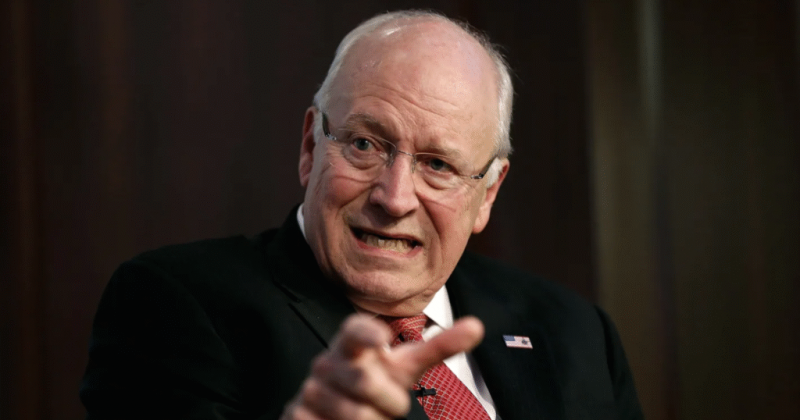Dick Cheney has died at the age of 84, his family announced. Cheney, who served as Vice President under George W. Bush from 2001 to 2009, was a defining architect of the post-9/11 “war on terror” and a central force behind the Iraq War — a conflict that shaped global politics for decades.
Born in Lincoln, Nebraska, and raised in Casper, Wyoming, Cheney’s path to political power began modestly. After struggling at Yale and facing arrests for drunk driving, he turned his life around, earning degrees in political science from the University of Wyoming. His partnership with his wife, Lynne, whom he met in high school, became a cornerstone of his personal stability.
Cheney entered Washington politics as an aide under the Nixon administration and later became White House Chief of Staff under President Gerald Ford. He quickly built a reputation as a sharp, disciplined strategist with a deep belief in executive power. Elected to Congress in 1978, Cheney represented Wyoming for six terms, becoming House Minority Whip and a respected conservative voice.
In 1989, President George H.W. Bush appointed Cheney Secretary of Defense, where he helped oversee the U.S. invasions of Panama and Kuwait. His measured but assertive management during Operation Desert Storm made him a respected figure in military circles. After leaving government, he became CEO of Halliburton, a major energy corporation — a position that later drew scrutiny during his vice presidency due to potential conflicts of interest.
When George W. Bush sought the presidency in 2000, Cheney was initially tasked with finding a running mate. In a twist of history, he ultimately chose himself. Cheney became the experienced hand behind the younger Bush, especially in foreign affairs and defense policy. His influence grew exponentially after the September 11 attacks.
While Bush was away, Cheney managed the government’s immediate crisis response from a White House bunker, authorizing the potential shooting down of hijacked aircraft.
In the aftermath of 9/11, Cheney championed aggressive policies to confront terrorism, including the invasions of Afghanistan and Iraq. He became the face of a new, unrelenting security doctrine that justified pre-emptive war and expanded executive power.
His assertions about Iraq’s weapons of mass destruction and ties to al-Qaeda — claims later proven false — helped build the case for the 2003 invasion. Despite widespread criticism and reports exposing the flawed intelligence, Cheney maintained he acted on what he believed was the best available information.
Cheney’s unapologetic defense of “enhanced interrogation techniques,” including waterboarding, drew fierce condemnation worldwide. Critics accused him of authorizing torture and undermining America’s moral standing, while supporters viewed him as a realist committed to protecting the nation. Even years later, Cheney said, “I would do it again in a minute.”
By the time he left office in 2009, Cheney’s approval ratings were low, and his image was that of a hardened warrior unwilling to admit mistakes. Yet, in retirement, he remained defiant. His 2012 heart transplant — after surviving five heart attacks — gave him a new lease on life. He called the procedure “the gift of life itself.”
Cheney’s later years saw an unexpected twist: a deep rift with the Republican Party he helped define. While a lifelong conservative, he broke sharply with Donald Trump, whom he branded “a coward” and “the greatest threat to our republic.” His daughter, Liz Cheney, mirrored that stance, sacrificing her political career to oppose Trump and his efforts to overturn the 2020 election.
In a striking act of defiance, Cheney cast his final presidential vote in 2024 for Democrat Kamala Harris, saying it was a duty to defend the Constitution above party loyalty. That decision symbolized how far the Republican Party had shifted from the traditional conservatism Cheney once embodied.
Despite decades of controversy, Cheney’s influence on U.S. foreign policy is undeniable. His belief in American strength, pre-emptive action, and executive authority defined an era of post-9/11 politics and reshaped global alliances. To supporters, he was a patriot who did what was necessary to defend the nation. To critics, he represented the excesses of American power and the moral compromises of the “war on terror.”
Dick Cheney is survived by his wife Lynne, daughters Liz and Mary, and seven grandchildren. Whether revered or reviled, his impact on the United States — and the world — will be felt for generations.

